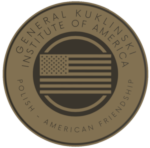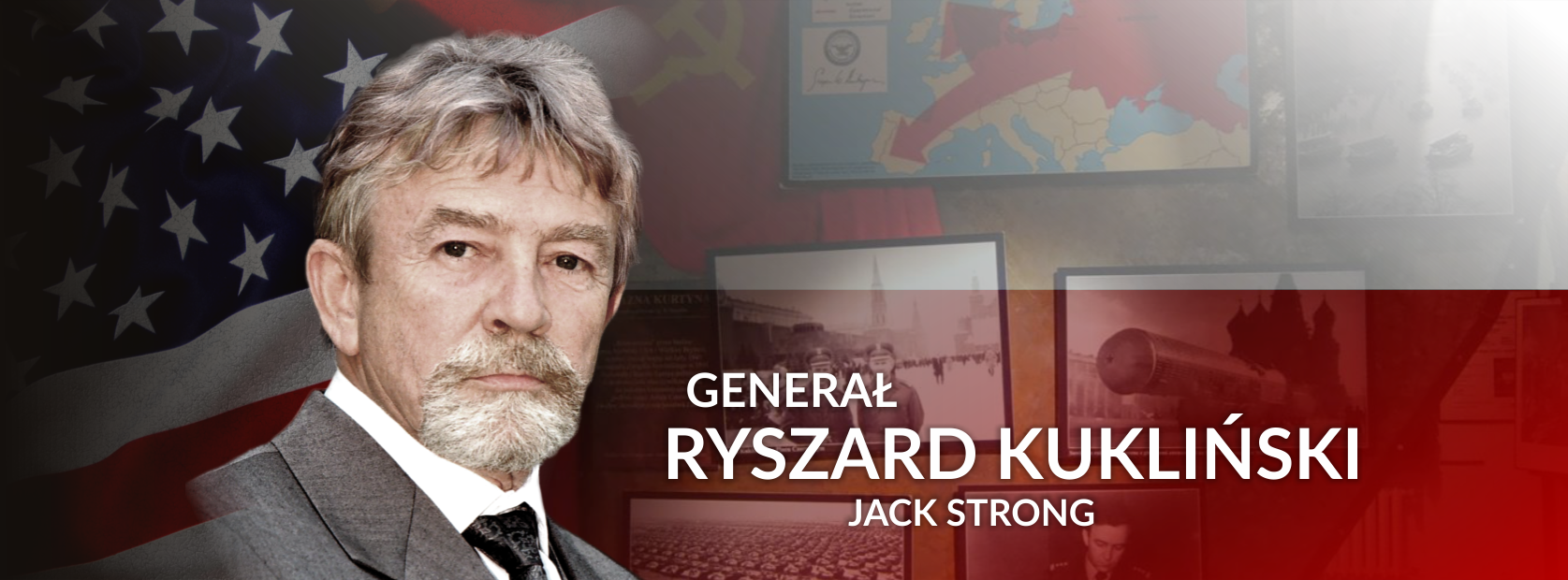Throughout the centuries, Poland has repeatedly been forced to defend itself against Russian onslaught. On many occasions, Poles warned the nations of Western Europe, the United States and Asia of the threat from St. Petersburg and Moscow. As often as the West did not listen to Polish concerns on the matter of totalitarianism, democracy and freedom were compromised.
It was unusual for Europe to be divided into East and West until the second half of the 19th century. It existed as a civilizational, economic and political unity, with all its state and national differences. As such, until 1944, Poland always remained part of Europe and Russia outside of it.
No country in Western civilization is as profound, as broad and as objective in its knowledge of Russia as the Poles. As an evil neighbor, Russia has always been a threat to Poland and Europe. Whether Tsarist or Soviet, it has always been an empire. Although at times a “colossus with feet of clay,” it proved exceptionally threatening to Europe in the 20th century. Just as the Yalta arrangements became synonymous with enslavement for Poland, the Pax Sovietica became such a threat to the rest of Europe and indeed the world.
Polish warnings against Russian imperialism and the threat posed by Moscow, aided by the cooperation of Western countries, allowed millions to be salvaged from slavery and for democracy to prevail.
Battle of Warsaw
Five days after Poland regained its independence, on November 16, 1918, the Bolshevik government issued an order commanding that special mobile units called the Western Army be formed within the Red Army. Its purpose was to implement the Kremlin’s strategic objectives formulated by Lenin on November 29, 1918. These objectives were to be Belarus, Poland and then all of Europe. In Lenin’s words, Europe was “sick, demoralized, in chaos, saturated, prosperous and slothful.”
On January 12, 1919, the Red Army command – Lev Trotsky and Sergei Kamenev – gave the order to initiate the red march westward, and thus execute the plan for Operation Vistula. This meant advancing through Poland into Germany and starting the communist revolution there.
Kiev was occupied as early as February 5, followed by the first clash with the Polish Army on February 14. Marshal Jozef Pilsudski warned the West and the countries we would today refer to as members of the so-called Three Seas Initiative. He attempted to create a united front of Central and Eastern European states. When this failed, he preempted further Soviet attacks, enabling Poland to defeat the Russians in the Battle of Warsaw on August 15, 1920, effectively saving Poland and Europe.
Speaking in the Kremlin on September 20, Prime Minister Vladimir Lenin described the situation in Europe as follows:
“Germany was gripped by revolutionary turmoil, and the English proletariat rose to a whole new revolutionary level. Everything there was up for grabs, but Pilsudski and his Poles caused a gigantic, unheard-of defeat of the world revolutionary cause (…) We will, however, continue to move from a defensive to an offensive strategy, relentlessly, until we finish these Poles off for good!”
Back in 1920, the Poles were heard by the Americans, who sent a squadron of airmen to patrol the entire front line. They were headed by Miriam Cooper, who would later become a director and Oscar winner for King Kong. We were heard by the French, who sent a military mission to Poland. Among the commanders at the time was Charles de Gaulle, the future president of France. Support was also provided by the Hungarians, who sent ammunition to Poland. With this concerted struggle, and above all the genius of Jozef Pilsudski, the specter of Moscow’s domination of Europe was averted.
World War II
As the fate of World War II turned, two fronts took shape: the Western Front and the Eastern Front. Western countries formed an alliance with the Stalinist USSR so that the Eastern Front advancing toward Central Europe could entrap Germany. The Poles warned at the time that once the Russians reached Berlin, they would not withdraw from there, seizing Eastern Europe and taking away the freedom of the peoples.
Prominent commanders of our country, including Prime Minister General Wladyslaw Sikorski, experienced in defending against the Russians in 1920, warned against this. After the revelation of the Russian Katyn massacre of twenty thousand Poles, General Sikorski decided to fly to the Middle East to meet with Polish soldiers. Returning to London from the inspection, he was killed in a mysterious plane crash. On July 4, 1943, General Wladyslaw Anders, a prisoner of the gulags, also warned of the Soviets’ intentions towards Europe. He commanded the leading of Polish officers out of Soviet captivity to the Middle East, and then along the battle route in Italy led the Poles again to the heart of Europe. Creator of the great success of the Polish Army in the Battle of Monte Cassino. Sadly, except for his friend General George Patton, the West did not listen to the Poles. Alas, in February 1945 at Yalta, the final agreement of the US, Britain and the USSR on Poland resulted in its surrender to the Russians.
Nor did they listen to us when we reported on the German massacres of Jews. On the camps, the murderous labor, the gas chambers and the incineration of bodies in furnaces. If the West had listened then, they would have saved millions of lives. They did not.
Soviet Communist Totalitarianism
As Poland and East Central Europe were completely engulfed by Soviet Communist totalitarianism, the legitimate Polish government in office in London was reporting on the political purges in Poland and elsewhere along with the violent occupation by the Red Army. General Anders, already as Commander-in-Chief, also sent messages from Cavalry Captain Witold Pilecki and from his group’s reports from Communist Poland. All to no avail. The West allowed Moscow to expand its influence until Washington felt the physical threat of nuclear ballistic missiles.
Cold War
Thus began the Cold War, and the West was on the verge of defeat. With few losses, the Soviets seized half of Germany and created the German Democratic Republic, subordinated to Moscow identically to Poland, creating a corridor for the conquest of Europe. The entire Balkans were subjugated to the USSR, while the so-called “civil war” was underway in Greece, where Soviet partisans sought to seize another country for Moscow. The Russians had the largest army in the world and complete plans to conquer Europe. They were also winning the space race against the Americans, putting the first artificial satellite and the first man in space.
Confronted with this exceptional Soviet domination, the Poles did not surrender, having the longest fighting partisans – today known as the Cursed Soldiers – and regular uprisings against Communist rule in 1956, 1968, 1970, 1976 and throughout the 1980s. Although the uprisings, including by the people of Communist Germany in 1953, the Hungarians in 1956, the Czechs and Slovaks in 1968 kept hope alive, they were brutally suppressed by the Russians and local Communists.
Poles and Freedom
Only after the Americans began to listen to the Polish voice did it bring freedom to millions of people in Europe. One of those voices came from General Ryszard Kuklinski, a soldier in the communist Polish Army with access to Soviet plans. At that very moment, the scales began to tip on the side of freedom. Between 1972 and 1981, Kuklinski sent 40,000 pages of classified Russian documents. In 1980, the world began to listen to Solidarity, the Polish trade union representing the largest organized social and freedom movement in the world. Support for Solidarity and the Poles coming from all over the Western world, especially the US, allowed Moscow’s influence in Poland to erode significantly. Beginning in 1978, the world also began to listen to the Polish Pope, the Holy
Father John Paul II.
Another important voice was that of Prof. Richard Pipes, an eminent expert on Russia, seeing it through the eyes of his birthplace – Poland. A former advisor to Richard Nixon and Ronald Reagan, he pinpointed where the US administration was wrong with regard to Russia.
In 1986, President Ronald Reagan informed Soviet leader Mikhail Gorbachev of his possession of classified documents handed over by Kuklinski. This paved the way for the collapse of the Soviet Union in 1991.
The true end of the Cold War and the empire of evil was the accession of Poland and other countries formerly occupied by Moscow to NATO and the European Union. It is also the crowning proof that when the West, especially the US, are open to Poland’s voice in Russian affairs, Europe is a safer place.
The Empire Strikes Back
Alas, a decade after the collapse of the USSR, a Soviet KGB officer who had served in Germany in the 1980s rose to power. As president, he began to pursue a policy of rebuilding the Russian empire. Despite their vast natural resources, economic and geographic potential, after 2000 the Russians were again hungry for imperial conquests. They started with the war in Chechnya, followed by Georgia in 2008. Then again, the Poles warned. The Polish President Lech Kaczynski gathered the leaders of Ukraine, Estonia, Latvia and Lithuania in Tbilisi and said: “We know very well that today Georgia, tomorrow Ukraine, the Baltic States the day after tomorrow, and then perhaps time will come for my country, Poland.”
Sadly, they did not listen. The West agreed to a partial occupation of Georgia. President Obama, resetting relations with Russia, withdrew missile defense from Poland, while Germany began doing major political and economic business with Moscow, building gas pipelines bypassing our region. What was the result of this? Regular gas blackmail and cutting off supplies, coupled with Russia’s attack on Ukraine in 2014 and in 2022, and the disarmament of Poland.
President Kaczynski died in a plane crash on Russian soil in 2010. The West remembered his words about Russia, the mission of Ryszard Kuklinski, the achievements of Pilsudski and Solidarity, the Poles, only after the Russians declared unprovoked war on Ukraine.
Filip Frąckowiak, Director of the General Kuklinski Cold War Museum


